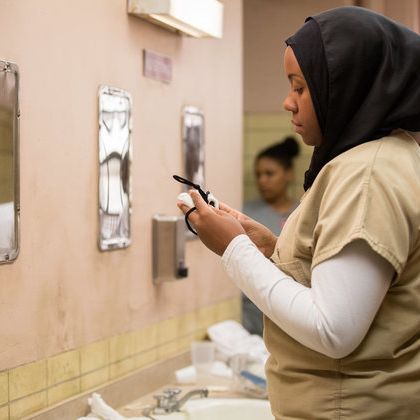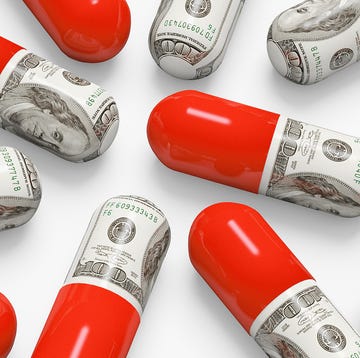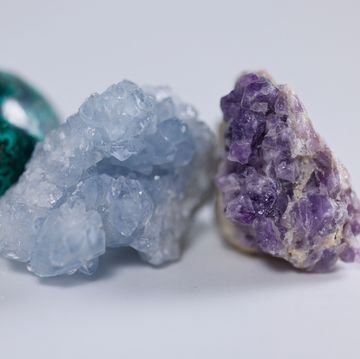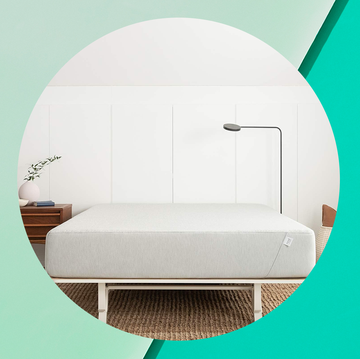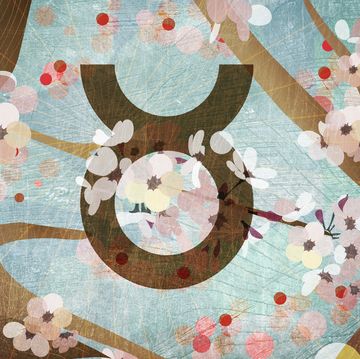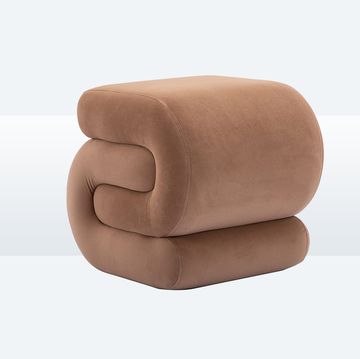We’re getting closer than ever before to menstrual equality: Periods are being de-stigmatized through initiatives like #TweetYourPeriod and efforts to end the “tampon tax." And as the Washington Post reported in June, New York City has announced that they’ll soon begin providing free tampons and pads in public schools, prisons, and homeless shelters, with officials finally acknowledging that they’re “not a luxury” and are “as necessary as toilet paper.”
Believe it or not, New York is the first city in the U.S. to put a policy like this on the books. Meaning that for the hundreds of thousands of American women who don’t have reliable access to pads and tampons, menstruating can still be a harrowing, shame-inducing experience—especially in prison.
RELATED: President Obama Weighs in on the Problem with Tampons
The High Cost of Menstrual Health
There are currently more than 200,000 women behind bars in the U.S., according to The Sentencing Project, a non-profit that advocates for criminal justice reform. And for those women, gaining access to menstrual products can be exceedingly difficult. “I think Orange Is the New Black has made it seem like commissary is a store, or a physical place where you can go and walk away with an item, but actually it’s a very long process,” Chandra Bozelko, a prison reform advocate and writer who blogs about the six years she spent as a prisoner at York Correctional Institution in Connecticut, tells WomensHealthMag.com.
“You have to place an order a week ahead via a slip, and if there’s a mistake anywhere along the way, which is fairly common, you just don’t get your items,” Bozelko says.
On top of that, she notes that most women in prison are poor or have no access to their funds outside of prison, and ordering pads and tampons can be incredibly expensive.
“There’s a shortage of prison jobs, and even if you get one, you earn about 75 cents a day,” Bozelko says. “So to have to spend $2.34 for 24 pads is a quarter of your weekly paycheck, keeping in mind that you’d also have to buy soap, shampoo, toothpaste, and all the other hygiene items that are basic to human existence.”
According to Ms. Magazine, in some prisons, a pack of tampons could be marked up to prices as high as $5.00. And even for women with plenty of money in their prison accounts, Bozelko notes that due to the difficulty of the commissary-ordering process, “even a millionaire might not be able to buy a pack of maxi-pads for months.”
Is This a Violation of Human Rights?
In theory, prisons in the U.S. are supposed to provide women with access to free pads and tampons. The United Nations' Bangkok Rules, which provide international guidelines for the treatment of women prisoners, stipulate that not providing prisoners with access to menstrual hygiene care products constitutes “inhuman or degrading treatment,” which qualifies as a human rights violation. But without laws to back them up, these guidelines aren’t enforceable.
"Even a millionaire might not be able to buy a pack of maxi-pads for months.”
According to A Woman’s Worth, Inc., an organization that works, in part, to provide women behind bars with access to menstrual hygiene products, even in prisons with policies stipulating that pads and tampons should be provided without cost, they are frequently “used as a bargaining chip or power/negotiating tool over women.”
Bozelko witnessed that sort of behavior firsthand when she or the other inmates would ask a CO (correctional officer) for extra (but necessary) tampons or pads.
“There’s a constant negotiation with COs to get menstrual health supplies,” she tells WomensHealthMag.com. “You’d ask a CO for pads or tampons and he would ask you questions like, ‘How long have you been bleeding? Didn’t I give you a pad yesterday? How long is this one going to last?’” Bozelko says. “It shouldn’t be shameful—it’s a natural bodily function—but it’s embarrassing to be required to disclose this kind of information and negotiate just to get the supplies you need to stay clean every month.”
RELATED: Ingrid Nilsen Is Having a Period Party, and Everybody Is Invited
The Low Quality of Care and Products
Once women did gain access to pads, they'd often find they were not very absorbent and without wings, Bozelko says. When women were forced to wear them until they were soaked through, it wasn’t uncommon to see a bloody pad slide out of someone’s pant leg and onto the floor, she says. “That’s all you had, so that’s what you used, as disgusting as that is.”
But the tampons, Bozelko reports, were of such poor quality that most people preferred to stick to pads. “There was only one size, so I’d heard of women saying they used three at a time because that’s what they needed for their flow, or others saying the tampon was too big for them and made them feel too uncomfortable,” she says. “I personally tried to stay away from tampons because the place was filthy—there was staph bacteria everywhere in the facility, so if I were to use a not-so-great tampon that could cause an abrasion, the risk of infection was, in my mind, very high.”
"It was really just a set-up to treat women poorly."
Bozelko also says she believes that keeping menstrual health products—and bodily sanitation in general—just out of reach of prisoners was often used as a psychological control tactic.
“If I saw it once, I saw it 35 times that someone would say to a CO, ‘I don’t have anything, I’m gonna bleed right through my clothes,’ and he’d say, ‘Go ahead, bleed right through your clothes, I don’t care.’ …Then when women did bleed through, which did happen frequently, the guards would make fun of her for it. It was really just a set-up to treat women poorly.”
RELATED: 7 Reasons I Love Talking About My Period
Bozelko reports that it was also fairly common for women to be denied access to showers for up to five or six days at a stretch, despite the fact that many of them were unable to afford deodorant, and to generally be forced to live in filthy conditions.
“Broken toilets are very common in prison,” she says. “COs seem to like to keep people living in a situation where there’s either blood, urine, or feces on a toilet and there’s no way to clean that up because paper towels are contraband and toilet paper is in short supply...I’ve heard of women using notebook paper, and even dirty ‘shower sheets,’ which were the little cut-up squares of old sheets everyone stood on on the bathroom floor after getting out of the shower, to wipe themselves when they had their periods or after a bowel movement because they were out of toilet paper, and what else could they use?”
Bozelko says that at her prison, there was a constant turnover of prisoners coming in and out, so the women's periods didn’t sync up. But in prisons where women are serving lengthy sentences, the prisoners will often all menstruate at the same time—which can make conditions especially unclean in the event of a pad or tampon shortage, or a lockdown that prevents people from showering.
RELATED: SEE HOW MENSTRUATION HAS CHANGED THROUGH HISTORY
Bozelko says that prison life is especially hard on women with endometriosis or other serious menstrual health issues. In her prison, the only pain relievers available to people with severe cramps were mini bottles of generic Tylenol that could be purchased from commissary, or occasionally, “if you were lucky,” a dose of Motrin 800 from a sympathetic nurse.
"I’ve heard of women using notebook paper to wipe themselves when they had their period."
“I had a cervical polyp that went undiagnosed for the last two years I was there, so I was bleeding excessively,” she says. “Instead of giving me more pads, they wanted me to wear adult diapers—but not quality ones, like modern Depends that you would get on the outside. Have you ever seen wee-wee pads for a dog? They were like that, just flat mats with little tape strips on the sides that didn’t really stick.”
In Solitary Confinement, It's Even Worse
In solitary confinement, Bozelko says, prisoners are often denied access to water within their cells to prevent flooding. (She points out that attempts to flood a solitary cell in order to get to a counselor, like Laverne Cox's character, Sophia, did in season four of Orange Is the New Black, is a fairly common occurrence.) Showers may be limited to twice a week, deodorant isn’t allowed, and soap is often difficult to come by.
RELATED: Around The World in 28 Periods
“I slept with arms above my head,” she says, “and without exaggeration, while I was in solitary I literally made myself sick from how bad I smelled.”
“If all of that weren’t happening, in addition to denial of sanitary supplies, I’d think it was purely misogynistic stuff related to menstruation," Bozelko says. "But I actually think that, in general, they want people feeling dirty and hating themselves… It’s almost impossible to keep clean in a prison, and that induces depression, self-loathing, and isolation. You don’t want to interact with the rest of the world or stick up for yourself when your own smell sickens you.”
"I literally made myself sick from how bad I smelled."
RELATED: 13 AMAZING THINGS WOMEN HAVE DONE WHILE ON THEIR PERIODS
"The Real Problem Is a Lack of Empathy"
As A Woman’s Worth points out, “The majority of women behind bars have been convicted of nonviolent crimes like ‘crimes of poverty,’ such as possession and prostitution. Even the crimes we deem heinous have a terrible backdrop: 90 percent of women convicted of heinous crimes, like assault against a man, were abused by those very men.” As the Bureau of Justice Statistics points out, only 7 percent of the over 200,000 women incarcerated in the U.S. are in prison for committing violent crimes.
“When people talk about prison life, I don’t know that anyone would say, ‘Oh prison conditions being poor and having to be filthy for days or weeks or years on end is what these people asked for when they committed a crime or went to jail,’” Bozelko says. “No one deserves to feel like that.”
"It’s almost impossible to keep clean in a prison, and that induces depression, self-loathing, and isolation."
Because women’s needs around menstrual health and hygiene are so varied, and because, as she says, “COs break rules all the time with very little consequence,” Bozelko is skeptical about whether state or federal mandates about menstrual health products in prison would be the best solution.
RELATED: WHY DO SOME WOMEN HAVE WAY WORSE PERIODS THAN OTHERS?
“The real problem in the lack of supplies for women is lack of empathy,” she says. “A law or regulation would help in some places, I’m sure, but the problem with how people are treated in prison can’t be cured with statutes. It has to be solved by training guards to be humane and have empathy, and making sure they know how to treat prisoners like human beings.”
